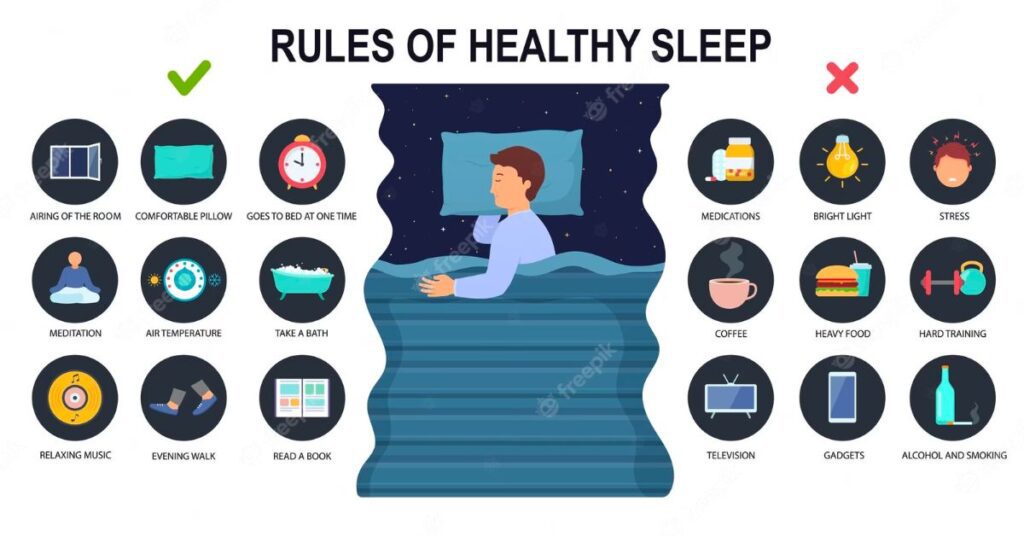Are you tired of hitting a weight loss plateau and feeling stuck in your fitness journey? As an expert weight loss trainer, I understand the frustration that comes with stagnant progress. But fear not, because I have the solution for you: building sustainable habits. In this guide, I will share with you the keys to avoiding weight loss plateaus and achieving long-term success. By implementing these strategies, you’ll not only break through those frustrating plateaus but also create a foundation for a healthier and more fulfilling lifestyle. So, let’s dive in and discover how to build sustainable habits that will keep you on track towards your weight loss goals.
Table of Contents
Understanding the Weight Loss Plateau
Have you ever experienced the frustration of hitting a weight loss plateau? You’ve been diligently following your diet and exercise routine, seeing progress week after week, and then suddenly, it comes to a screeching halt. No matter what you do, the scale refuses to budge, and your body seems stubbornly resistant to further change. What exactly causes this weight loss plateau, and how can you overcome it?
Research and evidence suggest that the weight loss plateau is a common phenomenon experienced by many individuals on their fitness journeys. When we start losing weight, our bodies naturally adapt to the changes. Our metabolism adjusts, and our energy expenditure decreases. This reduction in metabolic rate can be attributed to various factors, such as decreased muscle mass, hormonal changes, and decreased overall body weight. As a result, the caloric deficit that once led to consistent weight loss becomes less effective, causing progress to stall.
To truly understand and overcome the weight loss plateau, we need to recognize the importance of sustainable habits. Fad diets and extreme exercise regimens may yield initial results, but they often fail to provide a long-term solution. Instead, focusing on building sustainable habits is key to breaking through the stagnation and achieving lasting success.
By implementing a combination of strategies backed by research, you can navigate your way through the weight loss plateau. These may include adjusting your calorie intake, incorporating strength training exercises to preserve and build muscle mass, managing stress levels, ensuring adequate sleep, and adopting a mindset that values progress beyond the number on the scale.
In this comprehensive guide, we will delve deeper into each of these strategies and provide you with practical tips and evidence-based advice to help you break through the weight loss plateau. You’ll gain insights into the science behind plateaus, understand how to make adjustments to your routine, and discover sustainable habits that will propel you towards your weight loss goals.
Don’t let the weight loss plateau discourage you. By arming yourself with knowledge, implementing effective strategies, and adopting a long-term mindset, you can overcome this obstacle and continue your journey to a healthier, fitter you. Let’s embark on this enlightening exploration together and conquer the weight loss plateau once and for all.
Setting Realistic Goals

One of the primary reasons individuals experience a weight loss plateau is indeed because they set unrealistic goals. Rapid weight loss may initially seem gratifying, but it often leads to unsustainable habits and can trigger a plateau. Instead, focusing on setting realistic, attainable goals promotes a healthy and gradual weight loss process that is more likely to be sustainable in the long run.
When setting weight loss goals, it is crucial to consider various factors that influence weight and overall health. These factors include current weight, body composition (the ratio of fat to lean muscle mass), and individual health considerations. Consulting with a healthcare professional or a registered dietitian can provide personalized guidance based on specific needs and help set realistic goals.
Research supports the idea that setting realistic weight loss goals is crucial for success. One study published in the American Journal of Clinical Nutrition examined the relationship between weight loss goals and long-term weight management. The study found that individuals who set more modest weight loss goals were more likely to achieve and maintain their weight loss over time compared to those who set overly ambitious goals. Unrealistic goals often result in frustration and can lead to a cycle of yo-yo dieting and weight regain.
Moreover, shifting the focus from a specific number on the scale to broader health and wellness goals is highly beneficial. Instead of fixating solely on weight loss, consider goals such as improving overall fitness levels, increasing energy levels, or enhancing body composition by reducing body fat and building lean muscle mass. These goals encompass a holistic approach to health and can lead to improvements in various aspects of well-being.
A study published in the Journal of Obesity examined the impact of weight loss interventions that focused on improvements in body composition rather than just weight loss. The researchers found that participants who focused on reducing body fat and increasing lean muscle mass achieved significant improvements in metabolic health, even if their overall weight loss was modest. This highlights the importance of looking beyond the number on the scale and considering other markers of health and well-being.
It is essential to understand that weight loss is not a linear process, and progress may vary from week to week. Plateaus are a natural part of the weight loss journey and can occur even with realistic goals and consistent efforts. Embracing the journey and celebrating each milestone along the way, regardless of the number on the scale, helps maintain motivation and a positive mindset.
Incorporating Regular Physical Activity

Physical activity indeed plays a crucial role in breaking through a weight loss plateau. Incorporating regular exercise into your routine can help boost your metabolism, increase calorie burning, and stimulate muscle growth, all of which can contribute to overcoming a plateau and achieving weight loss goals.
Numerous studies support the effectiveness of physical activity in weight management. A systematic review published in the Journal of Obesity Reviews analyzed the impact of exercise on weight loss and weight maintenance. The review found that engaging in regular exercise was associated with greater weight loss and better weight maintenance compared to relying solely on dietary interventions.
Cardiovascular exercises are particularly effective for increasing calorie expenditure and promoting weight loss. These exercises elevate your heart rate and help burn calories during the activity itself and even after you’ve finished. The American Heart Association recommends at least 150 minutes of moderate-intensity aerobic activity or 75 minutes of vigorous-intensity aerobic activity per week for overall cardiovascular health and weight management.
Research published in the British Journal of Sports Medicine examined the impact of different types of exercise on weight loss. The study concluded that both high-intensity interval training (HIIT) and moderate-intensity continuous training (MICT) were effective for reducing body fat and body weight. These exercises included activities like running, swimming, cycling, and other forms of cardio.
Strength training is equally important for breaking through a weight loss plateau. Building lean muscle mass through strength training can increase your resting metabolic rate, meaning you burn more calories even at rest. A study published in the Journal of Obesity demonstrated that combining aerobic exercise with resistance training resulted in greater reductions in body weight, fat mass, and waist circumference compared to aerobic exercise alone.
Following a Balanced and Nutrient-Dense Diet

Diet indeed plays a significant role in weight loss and preventing plateaus. Adopting a balanced and nutrient-dense eating plan is key, as crash diets or extreme calorie restrictions can be unsustainable and counterproductive to long-term weight loss goals. Instead, focus on incorporating a variety of fruits, vegetables, lean proteins, whole grains, and healthy fats into your meals.
Research supports the effectiveness of a balanced and nutrient-dense diet for weight management. A study published in the New England Journal of Medicine compared four different diets and their impact on weight loss. The study found that diets emphasizing whole foods, such as fruits, vegetables, whole grains, and lean proteins, were associated with greater weight loss and better adherence compared to diets with a focus on processed or low-fat products.
Creating a moderate calorie deficit is important for weight loss, but it’s crucial to avoid drastic calorie restrictions that can slow down metabolism and hinder progress. Calculate your daily calorie needs based on your age, sex, weight, and activity level, and aim to consume slightly fewer calories than what is needed for weight maintenance. This gradual calorie deficit allows for steady and sustainable weight loss over time.
Whole, unprocessed foods should form the foundation of your diet. These foods are rich in essential nutrients, including vitamins, minerals, and fiber, while being lower in added sugars, sodium, and unhealthy fats. Research published in the journal Obesity Reviews suggests that higher consumption of fruits and vegetables is associated with lower body weight and reduced risk of weight gain.
Protein is particularly important for weight loss as it helps promote satiety and preserves lean muscle mass. Incorporate lean sources of protein such as poultry, fish, tofu, legumes, and Greek yogurt into your meals. Research published in the American Journal of Clinical Nutrition indicates that high-protein diets are effective in reducing body weight, preserving lean mass, and improving body composition.
Whole grains provide sustained energy and fiber, which aids in digestion and helps you feel full. Opt for whole grain options like brown rice, quinoa, whole wheat bread, and oats. These foods have a lower glycemic index, meaning they have a slower impact on blood sugar levels and can help regulate appetite. A study published in the American Journal of Clinical Nutrition found that higher consumption of whole grains was associated with a lower risk of weight gain.
Healthy fats, such as those found in avocados, nuts, and seeds, are essential for overall health and satiety. They help keep you feeling satisfied and provide important nutrients. Research published in the journal Nutrients suggests that incorporating healthy fats into a weight loss diet can enhance adherence, improve satiety, and support long-term weight management.
Monitoring and Tracking Your Progress
Monitoring and tracking your progress is indeed crucial for overcoming a weight loss plateau. Keeping a food journal and tracking your physical activity can provide valuable insights into your habits and help you make necessary adjustments to your routine.
Research supports the effectiveness of self-monitoring in weight loss. A study published in the Journal of the Academy of Nutrition and Dietetics examined the impact of self-monitoring on weight loss and found that individuals who consistently tracked their food intake and physical activity were more successful in achieving weight loss goals compared to those who did not track.
Various smartphone apps and websites are available to assist you in tracking your food intake and physical activity. These tools provide comprehensive data on calorie intake, nutrient composition, exercise duration, and even offer meal planning features.
Regularly reviewing and analyzing the information from your tracking efforts can help you identify patterns and areas for improvement. For example, you may discover that you’re consuming more calories than you realize or that you need to increase the intensity or duration of your workouts. This knowledge allows you to make informed decisions about your dietary and exercise habits to overcome the plateau.
In addition to tracking food and exercise, measuring your body measurements can provide a more comprehensive view of your progress. The scale may not always accurately reflect changes in body composition, especially if you’re gaining muscle while losing fat. Measuring waist circumference, hip circumference, and body fat percentage can help you assess changes in body shape and composition over time. A study published in the American Journal of Clinical Nutrition found that reductions in waist circumference were associated with improvements in metabolic health, even in the absence of significant weight loss.
Incorporating Strength Training

Strength training is indeed an effective way to boost your metabolism and overcome a weight loss plateau. By building lean muscle mass, you can increase your basal metabolic rate, which means you burn more calories even at rest. Incorporating a variety of strength training exercises into your workout routine can help stimulate muscle growth and enhance your weight loss efforts.
Research supports the benefits of strength training for weight management. A study published in the journal Obesity Reviews analyzed the impact of resistance training on body weight and body composition. The findings indicated that resistance training, especially when combined with aerobic exercise, resulted in significant reductions in body weight, body fat percentage, and waist circumference.
Engaging in compound exercises that target multiple muscle groups simultaneously can be particularly effective for boosting metabolism and promoting weight loss. Squats, lunges, push-ups, rows, and planks are examples of compound exercises that engage large muscle groups and require more energy expenditure. Research published in the Journal of Strength and Conditioning Research suggests that compound exercises elicit a greater metabolic response compared to isolation exercises.
Incorporate strength training exercises into your workout routine at least two to three times per week. Start with lighter weights or bodyweight exercises if you’re a beginner and gradually increase the resistance as you get stronger. Aim for a variety of exercises that target major muscle groups, including your legs, arms, back, chest, and core. This balanced approach ensures that you’re working different muscle groups and promoting overall strength and stability.
If you’re new to strength training or want to refine your technique, consider working with a certified personal trainer. They can teach you proper form, help you design a program that aligns with your goals, and ensure that you’re performing exercises safely and effectively. Research published in the Journal of Strength and Conditioning Research suggests that working with a personal trainer can lead to greater improvements in strength and body composition compared to self-guided training.
Prioritizing Sleep and Stress Management

Adequate sleep and effective stress management are indeed crucial for weight loss and overall well-being. Lack of sleep and chronic stress can disrupt hormonal balance, affect appetite regulation, and impact metabolism, potentially leading to weight loss plateaus.
Research supports the importance of sleep for weight management. A study published in the International Journal of Obesity examined the relationship between sleep duration and weight gain in adults. The findings revealed that individuals who slept less than seven hours per night had a higher risk of weight gain and obesity compared to those who slept seven to nine hours.
To prioritize quality sleep, establish a consistent sleep schedule and aim for seven to nine hours of uninterrupted sleep each night. Going to bed and waking up at the same time each day helps regulate your internal body clock and promote better sleep. Create a relaxing bedtime routine by engaging in activities such as reading, taking a warm bath, or practicing relaxation techniques. Limit screen time before bed, as exposure to blue light from electronic devices can interfere with the production of sleep-inducing hormones.
Creating a sleep-friendly environment is also important. Ensure your bedroom is dark, quiet, and at a comfortable temperature. Use blackout curtains, earplugs, or a white noise machine if necessary. Investing in a supportive mattress and pillows can also contribute to better sleep quality.
Effective stress management is another key aspect of weight loss and overall well-being. Chronic stress triggers the release of cortisol, a hormone that can lead to increased appetite, cravings for unhealthy foods, and weight gain. By incorporating stress-reducing techniques into your daily routine, you can better manage stress and support your weight loss efforts.
Staying Consistent and Accountable
Consistency is indeed a crucial factor in building sustainable habits and overcoming weight loss plateaus. Establishing a routine and sticking to it helps create a sense of stability and reinforces healthy behaviors that contribute to long-term success.
Research supports the importance of consistency in weight management. A study published in the International Journal of Behavioral Nutrition and Physical Activity examined the impact of consistency in physical activity on weight loss maintenance. The findings indicated that individuals who maintained consistent physical activity levels were more likely to maintain weight loss over time compared to those who had inconsistent activity levels.
Having an accountability partner or joining a support group can provide valuable support and motivation on your weight loss journey. Sharing your goals, progress, and challenges with someone who understands and supports you can help keep you accountable and motivated. A study published in the journal Obesity Reviews found that social support is associated with greater success in weight loss and weight loss maintenance.
Consider finding an accountability partner or joining a support group either in person or online. These individuals or groups can provide a sense of community, guidance, and encouragement. They can also offer insights and strategies based on their own experiences, which can help you navigate challenges and stay focused on your goals.
Celebrating each milestone along the way, regardless of how small, is essential for maintaining motivation and engagement. Research suggests that acknowledging and rewarding progress can enhance self-efficacy and increase adherence to healthy behaviors. Set small, achievable goals and celebrate them when you reach them. This could involve treating yourself to a non-food reward, sharing your success with your accountability partner or support group, or simply acknowledging and appreciating your own efforts.
Rewarding Yourself Along the Way
Rewarding yourself along the way is an important aspect of staying motivated and positive on your weight loss journey. Celebrating your achievements and milestones can provide a sense of accomplishment and reinforce the positive changes you’ve made. However, it’s crucial to choose rewards that align with your health goals and promote your overall well-being.
Research suggests that non-food rewards can be effective in promoting sustainable weight loss. A study published in the Journal of Consulting and Clinical Psychology examined the impact of non-food rewards on weight loss in women. The findings revealed that participants who received non-food rewards for achieving their weight loss goals showed greater adherence to their weight loss plan and sustained their weight loss over a longer period compared to those who did not receive rewards.
When choosing rewards, focus on non-food-related options that support your health and well-being. Consider treating yourself to a massage or spa treatment to relax and rejuvenate your body. Purchase a new workout outfit or fitness equipment that can enhance your exercise routine and make you feel motivated. Plan a day trip to explore nature or engage in a fun physical activity, such as hiking or cycling, which can provide both enjoyment and exercise.
The key is to associate your rewards with positive behaviors and reinforce the progress you’ve made. By choosing non-food rewards, you avoid potential setbacks or unhealthy associations with food as a reward. Instead, you create a positive cycle of self-care, self-appreciation, and motivation.
Conclusion
In conclusion, overcoming a weight loss plateau requires a multifaceted approach. By setting realistic goals, incorporating regular exercise, adopting a balanced and nutrient-dense diet, monitoring your progress, prioritizing sleep and stress management, maintaining consistency, and rewarding yourself along the way, you can break through plateaus and achieve sustainable weight loss. Remember that everyone’s weight loss journey is unique, and it’s important to listen to your body, seek professional guidance if needed, and celebrate the small victories that contribute to your overall well-being. Stay committed, stay positive, and embrace the process as you work towards your weight loss goals.


6 thoughts on “Break Weight Loss Plateau: 8 Tips for Sustainable Habits”